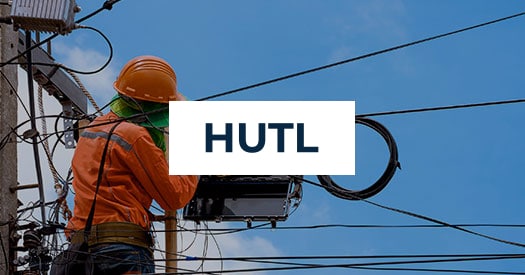By Harvest Portfolios Group
 |
Mike Dragosits, CFAPortfolio Manager |
As the pandemic’s impact recedes and a global recovery accelerates, utilities stocks have regained their appeal as defensive, higher yielding investments.
This makes them particularly attractive as a portfolio anchor. While investments in this sector are unlikely to yield large short-term gains, the companies provide the underlying systems we depend on to improve productivity and stimulate growth. They tend to be regulated, have high barriers to entry and are well-established business with predictable income streams.
“There are two parts to answer the question about why go global if you want to own utilities,” says Harvest Portfolios Group Portfolio Manager Mike Dragosits.
“These are high yielding, stable, consistent income generating assets. That’s quite attractive in our low yield world. They have low volatility and really shine during troubled times.”
Harvest captures that opportunity through the Harvest Equal Weight Global Utilities Income ETF (TSX: HUTL) which it launched in January, 2019.
The ETF invests in an equally weighted portfolio of 30 global utilities, covering telecommunications, oil and gas storage and energy transportation. HUTL is designed to provide a consistent and competitive monthly income with an opportunity for growth.
It also benefits from the Harvest covered call strategy to enhance yield. The strategy involves selling a portion of the potential rise in stock price in exchange for a fee. The fee becomes part of the return. It limits the capital gain slightly, but it also acts as a cushion if share prices fall.
The ETF’s largest geographic weights as at June 30, 2021 are the U.S. (36%), Canada (16%) and Europe (36%). The Canadian names include Fortis Inc., Emera Inc., TC Energy Corp. and BCE Inc.
The sector weights are 50-to-55% utilities, 30-to-40% in telecoms and -5 to-10% pipelines. The ETF is hedged to the Canadian dollar and has 0.50% management fee. The average market capitalization as of June 30, 2021was CAD $55 billion.
Mr. Dragosits said there were fears early in the pandemic that some companies would not be able to pay their utility bills. This sent utility share prices lower, but when the fear of defaults eased, they rebounded based on fundamental demand. As oil and energy markets have recovered that has turned around expectations for energy-related assets.
Mr. Dragosits said the ETF was designed to hold the biggest names in North America and Western Europe who have monopolistic infrastructure-type critical assets. The selection began with about 400 companies ranked by size and from highest to lowest dividend yield.
Some of highest yielding names were removed, as well as the bottom 50%. What remained is a group of 30 higher yielding names ranked by market capitalization. The ETF is rebalanced quarterly.
The holdings have remained consistent with four of the top companies based in Europe. This includes Spain’s Red Electrica Corp., a partly state-owned public company which operates the national electricity grid in Spain. Uniper SE, based in Dusseldorf is an international energy company. Vodafone Group Plc is a British multinational telecommunications company.
Mr. Dragosits said many Canadians may hold companies like TC Energy or BCE, but fewer hold companies in Europe or the U.S. That differentiates the Harvest ETF, along with its diversification beyond traditional electric utilities, as it protects against any political, regulatory, or natural disaster risks in any one jurisdiction.
He noted that as of June 30, 2021, the companies in the S&P 500 were yielding 1.4%, while the average of the companies in the Harvest ETF was 5.1%. That was enhanced to a yield of 7.3% by the covered call strategy.
“So that’s pretty attractive for people looking for stable, consistent income or for retirees. It has a lot of income with a little bit of growth.”
For more on Harvest ETFs click here.














